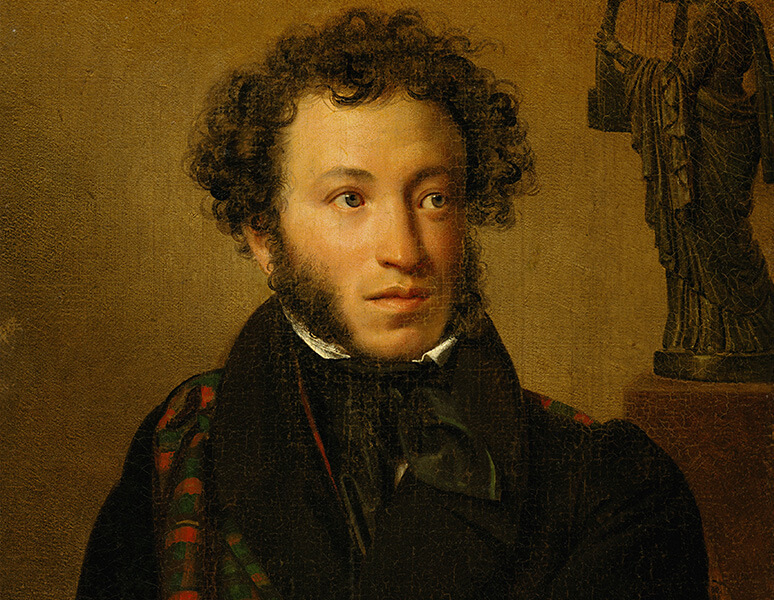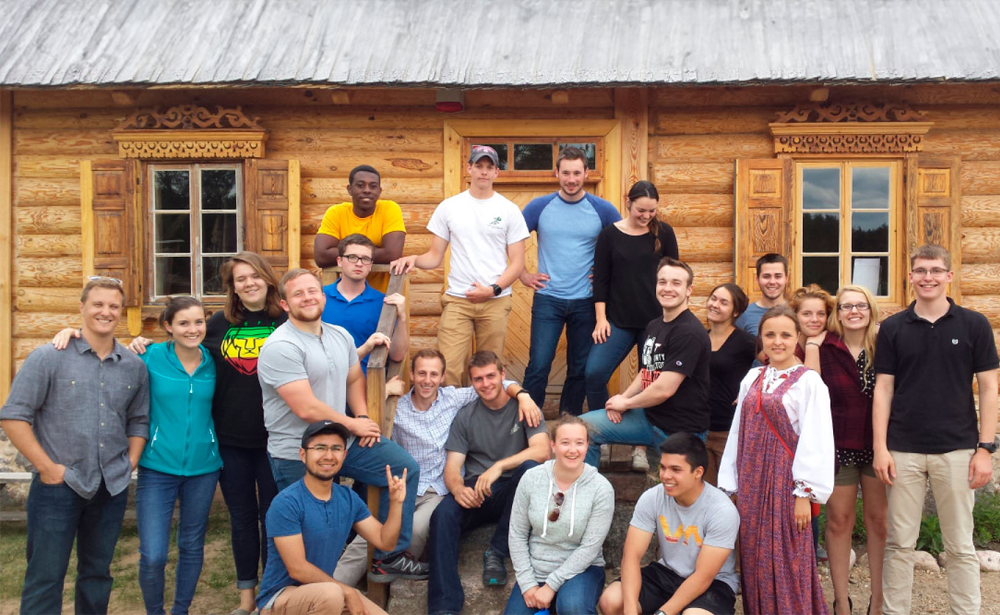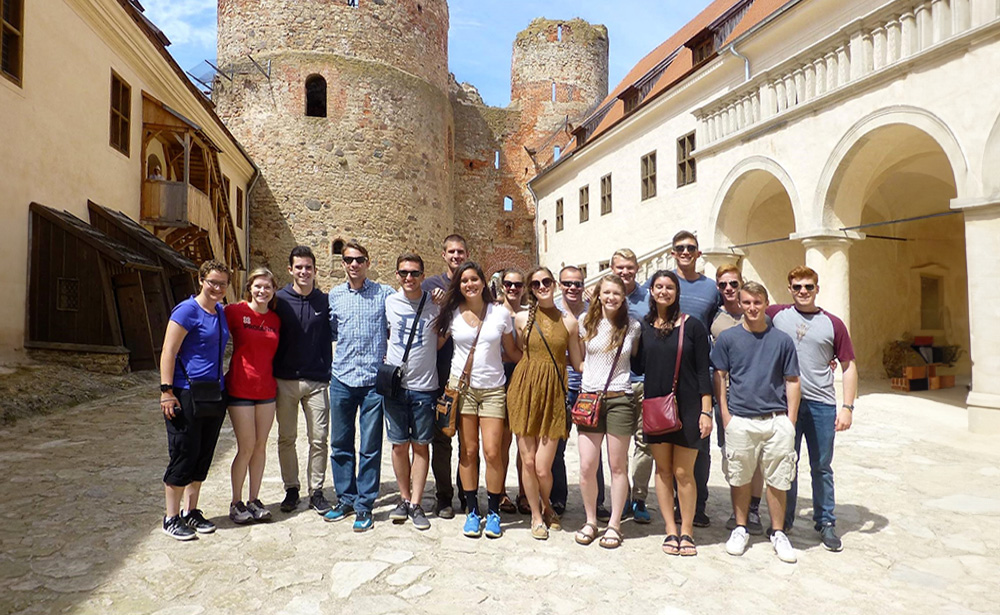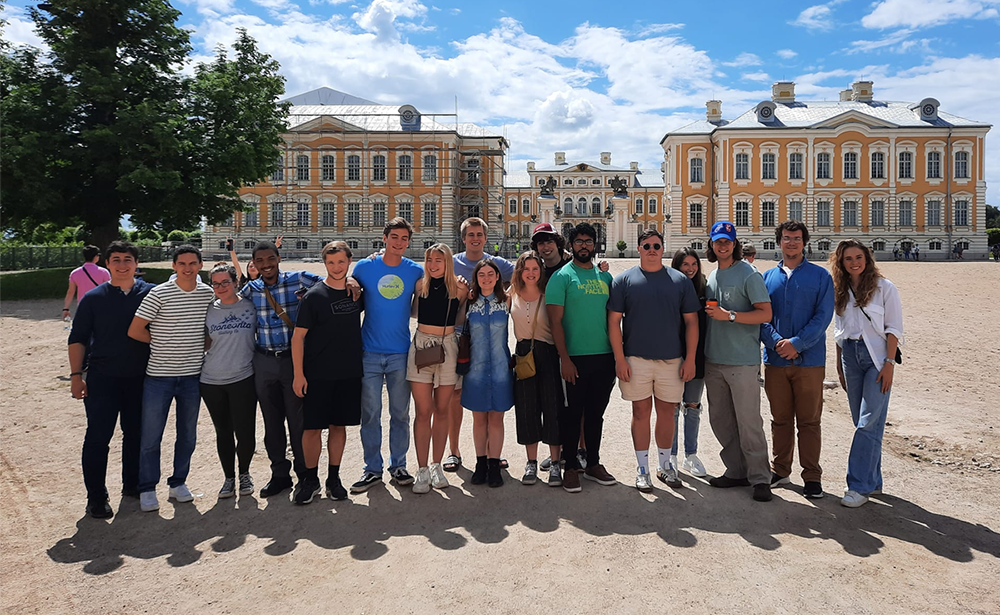Alexander Sergeyevich Pushkin – 220th Anniversary of the Poet
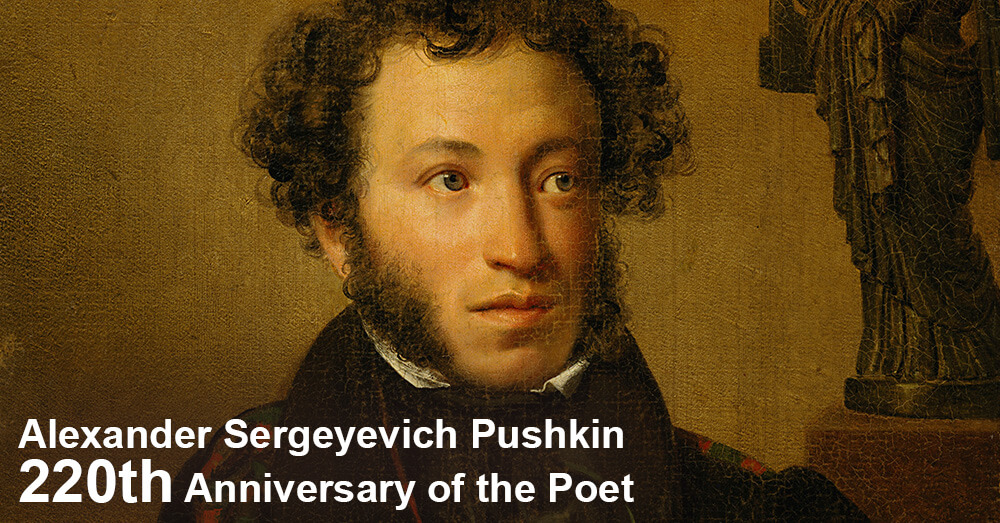
Alexander Sergeyevich Pushkin is one of the greatest Russian poets of all time. June the 6th is the 220th anniversary of the poet, but even today people from all over the world sill know, remember, and appreciate his works. In this article, we would like to tell you about Pushkin’s biography and works.
Biography
Alexander Sergeyevich Pushkin was born on the 6th of June, 1799 in Moscow in the noble family of Sergey Lvovich Pushkin. His mother, Nadezhda Osipovna, was a great-granddaughter of Abram Hannibal, an African who was adopted by Peter the Great whose comrade in arms he became. Pushkin inherited his hot temperament and love of life from his mother and her African origin, and thanks to his poetic talent, he managed skilfully to put all his thoughts onto paper.
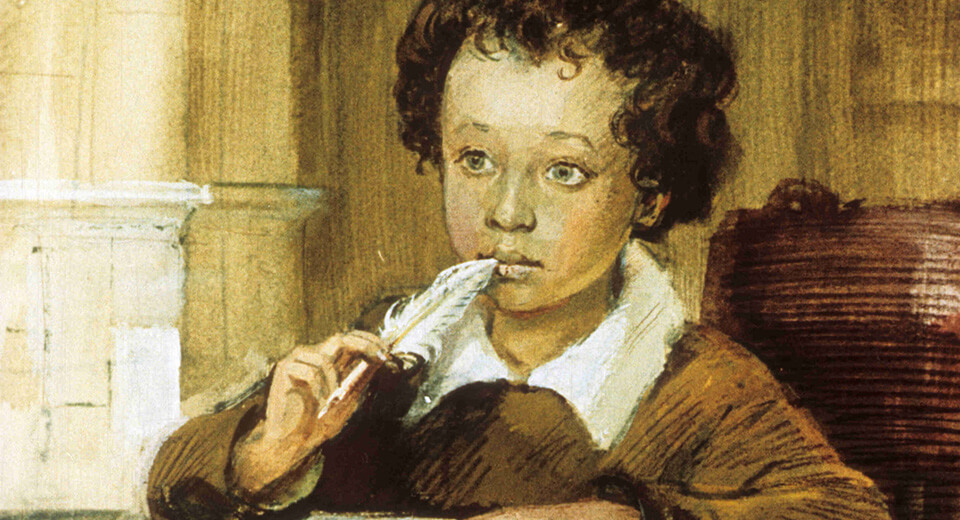
Alexander Sergeyevich was not the only child in the Pushkin family. Alexander had a sister Olga and a brother Lev. Alexander’s parents were very educated people. They knew Latin and French languages, history, and literature. Many poets, artists, and musicians visited their house.
As a child Alexander was educated at home. He studied languages and sciences. Pushkin often visited his grandmother Maria Alexeevna who taught him to love Russian folklore. His grandmother also hired a nanny Arina Rodionovna for little Sasha. Through his nanny’s fairy tales and stories, Pushkin got used to the music of Russian language, which later balanced his French education, which was typical of the nobility in Russia.
Studying at the Imperial Lyceum at Tsarskoye Selo
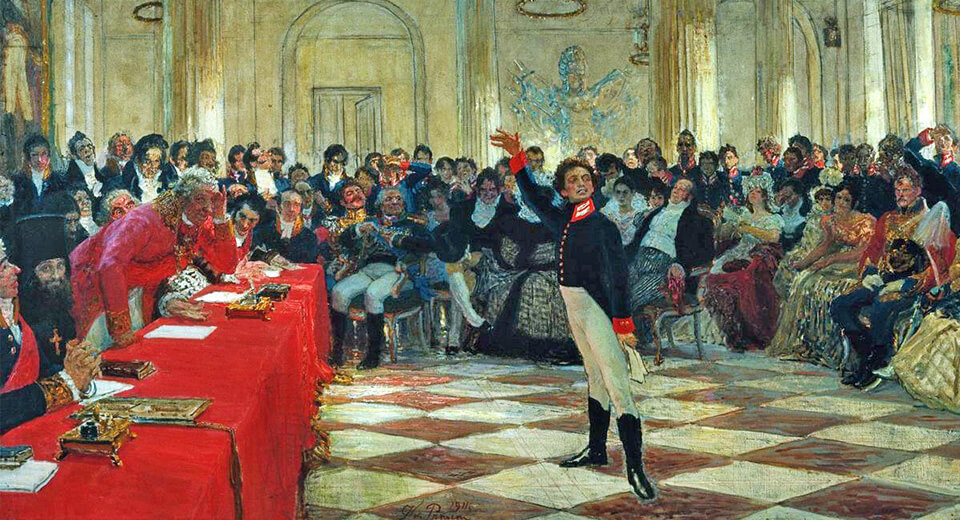
At the age of 12 Pushkin accompanied by his uncle arrived in St. Petersburg, where he entered the newly founded Imperial Lyceum. Alexander was selected to be among the thirty students in the first class at the Lyceum. At the Lyceum Pushkin made friends with all students. Among his classmates and friends were Delvig, Küchelbecker, and Pushchin, who stayed his friends during all his life.
Pushkin’s poetic talent already appeared at the Lyceum, and it was highly appreciated by his professors and friends. Later he was recognized by such writers as Batyushkov, Zhukovsky, Derzhavin, and Karamzin.
Career
In 1817 Pushkin accepted a post in the foreign office. His former classmates from Lyceum became his colleagues. At the same time, his family also moved to St. Petersburg. Pushkin was hardly interested in the career of a diplomat, although he used to go to his office for 7 years. The knowledge and experience he received at the foreign office he later applied in his literary work.
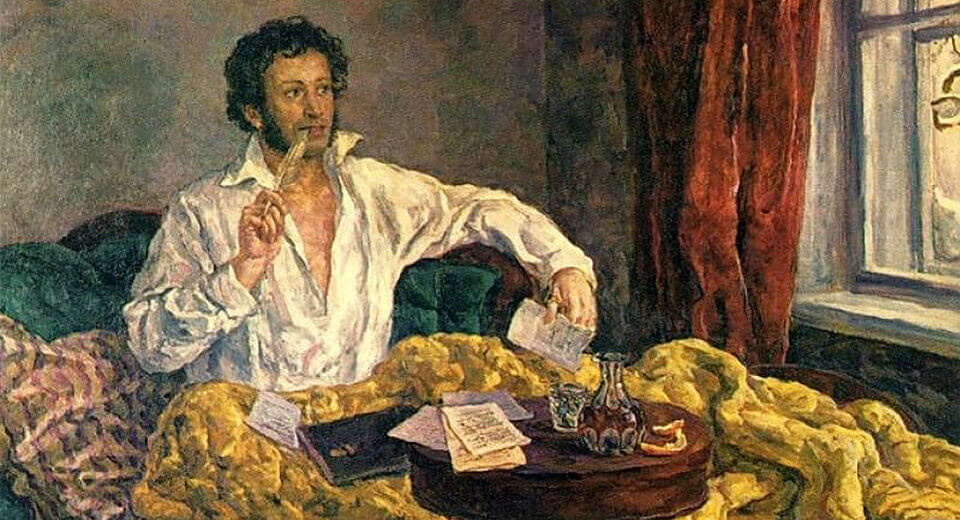
Apart from his work, Pushkin also became a member of a literary circle “Green Lamp”, where he wrote his poems “Freedom”, “The Village”, and “On Arackcheev”. However, the poems were not published, and the consequences affected the young poet quite badly, as having fallen out of favour with the Emperor, he was under the threat of the exile to Siberia. Thanks to the efforts of his loyal friends, the exile to Siberia was replaced with the exile in the South. In 1820 Alexander Sergeyevich Pushkin went to a new place of work.
During 4 years of his work Pushkin managed to visit different cities of the Russian Empire. As a result of his official trips, he received a lot of impressions and emotions that inspired Pushkin to write his new works. Then the new Emperor Nicholas I pardoned Pushkin and returned him from the exile.
The Poet’s Last Years
Last years of Pushkin’s life were not really happy. He tried to improve his financial situation, he often borrowed money, and then he had to work hard to pay his debts back. It was followed by gossips related to his wife Natalya Nikolayevna Goncharova and the French guardsman Dantes, who openly demonstrated his attention to Pushkin’s wife.
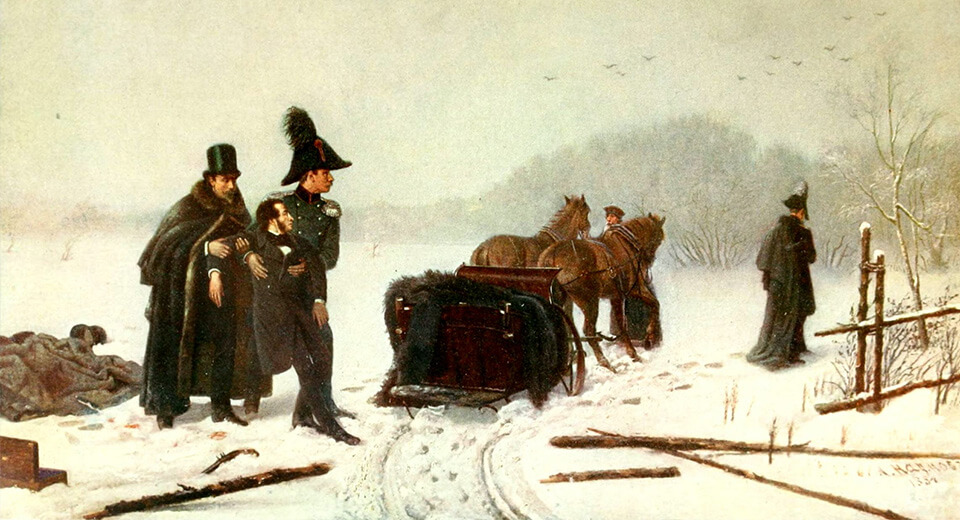
Thanks to his friends’ efforts, the first duel of Pushkin with Dantes did not happen, but Alexander was ready to defend the honor of his wife. Then there were rumors in St. Petersburg again, and the enraged poet sent a letter to Heeckeren, Dantes ‘ foster father. Heeckeren himself did not have an opportunity to meet Pushkin in person, so Dantes intervened and called Pushkin to a duel.
A duel with Dantes took place on January 27, 1837. Dantes fired first, and Pushkin was mortally wounded. Pushkin died two days later, on January 29. After the poet’s death, there were a large number of monuments erected in Pushkin’s honor.
Without any doubt, Alexander Pushkin can be called the founder of the modern Russian literary language. He was recognized as one of the most distinguished Russian poets during his lifetime. Everyone who has ever read poetry or prose by this brilliant poet cannot help but fall in love with his works.

You may be interested
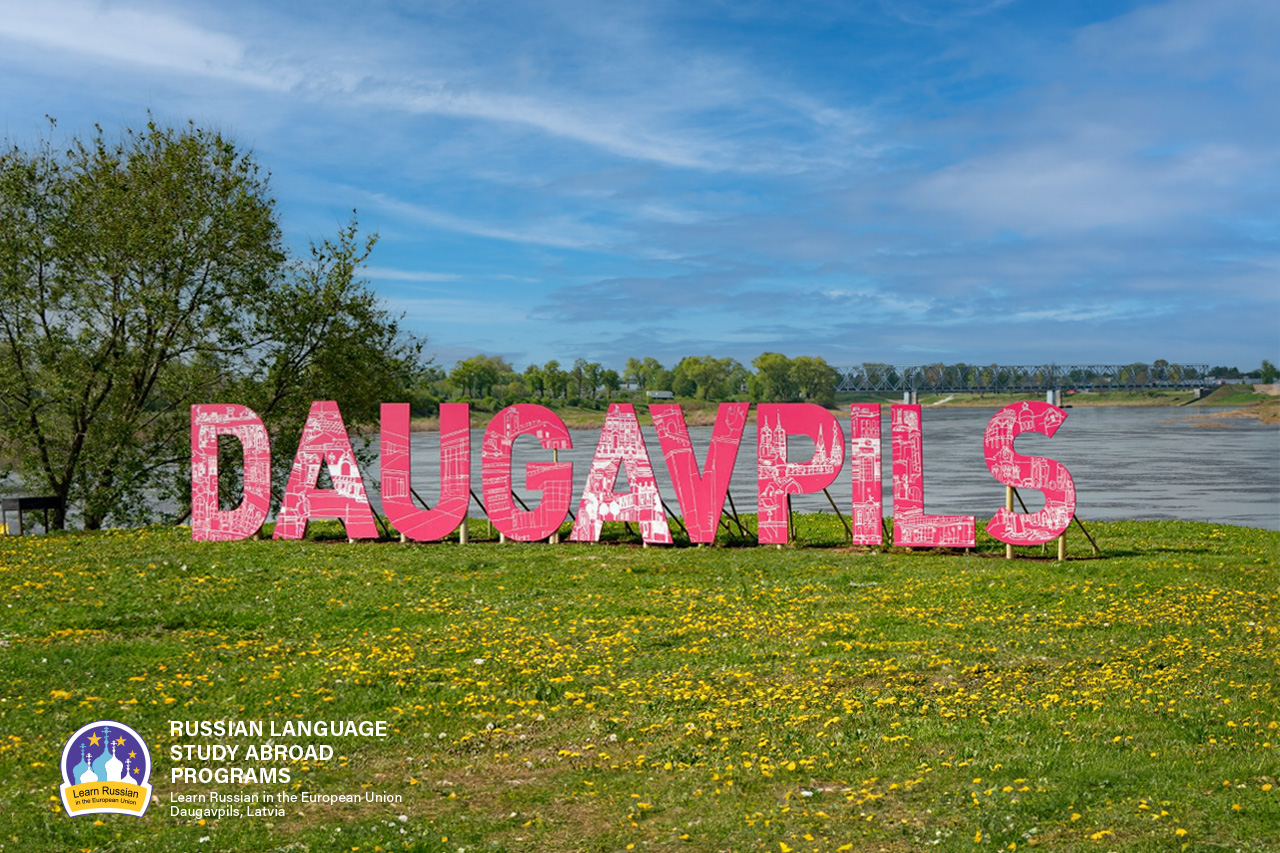
Why do people speak Russian in Daugavpils?
As it seems to us, Daugavpils is the best place to learn Russian now, because our city is situated in the EU and NATO, but at the same time 90% of the city’s population speak Russian at home.
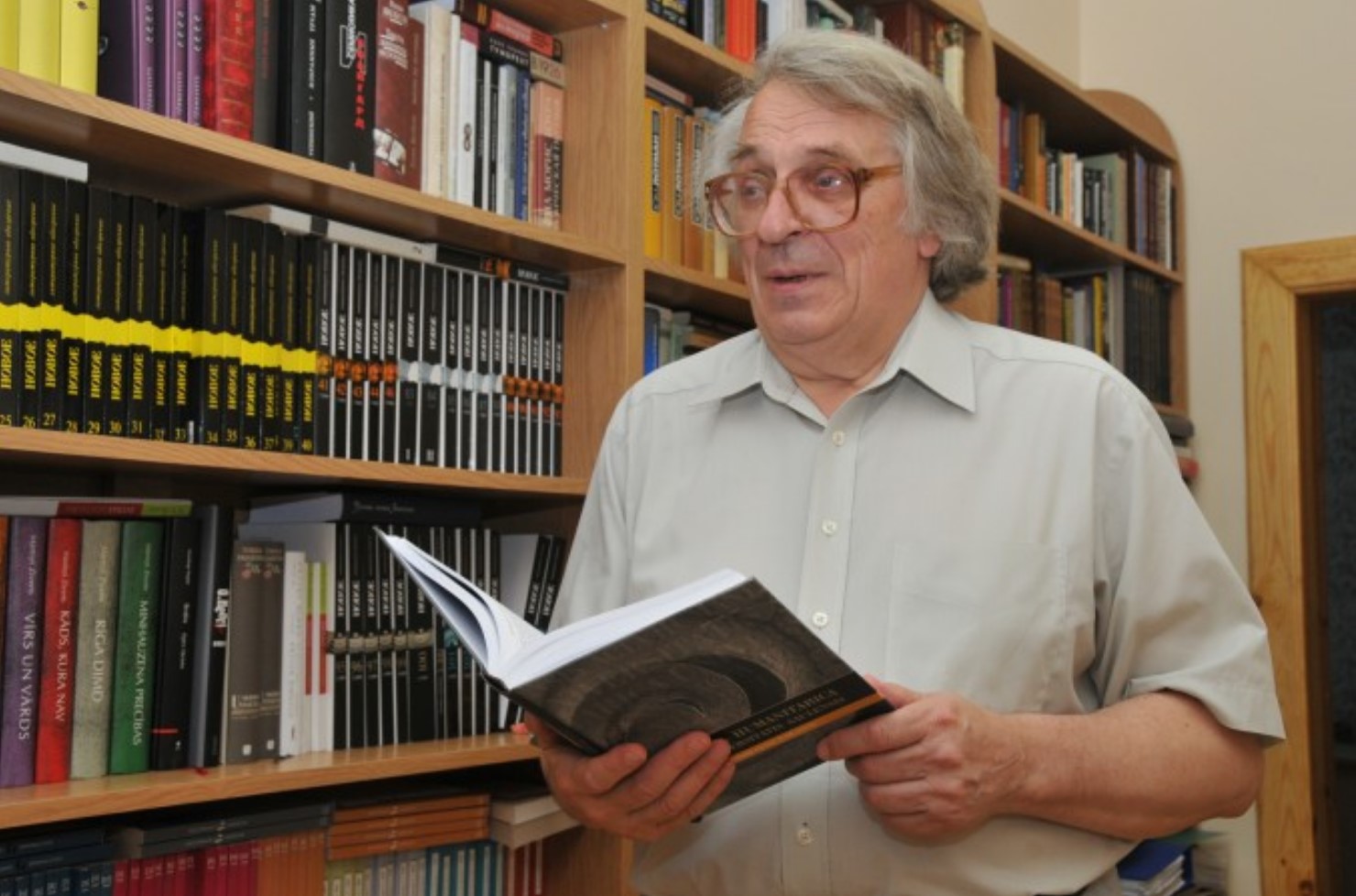
ЭТЮД О ДВИНСКЕ
Etude on Dvinsk by F.Fedorov
The Baltic region is one of the most catastrophe prone regions of the 2nd millennium, especially its second part; it is the centre of attraction of ‘geopolitical’ interests of the European world. Probably the most tragic fate has befallen to the eastern part of the present Latvia and its multi-titled town of Dinaburg – Dvinsk – Daugavpils. During its 730 years long history, the town went through five rather autonomous periods of development, five different lives (German, Polish, Russian, Latvian, Soviet), and at the beginning of the 1990s it entered into the 6th period.
The history of Dinaburg – Dvinsk – Daugavpils is the history of five attempts by the town to begin its life anew; and this is determined not only by the fact that the town was four times burned down and had to start life from scratch, but first and foremost because each of these periods was characterized by a total change of ethnos and the socio-cultural field.
The present article deals with the cultural space of the town in one of the most efficient periods of its development – from the 1860s till World War I.


